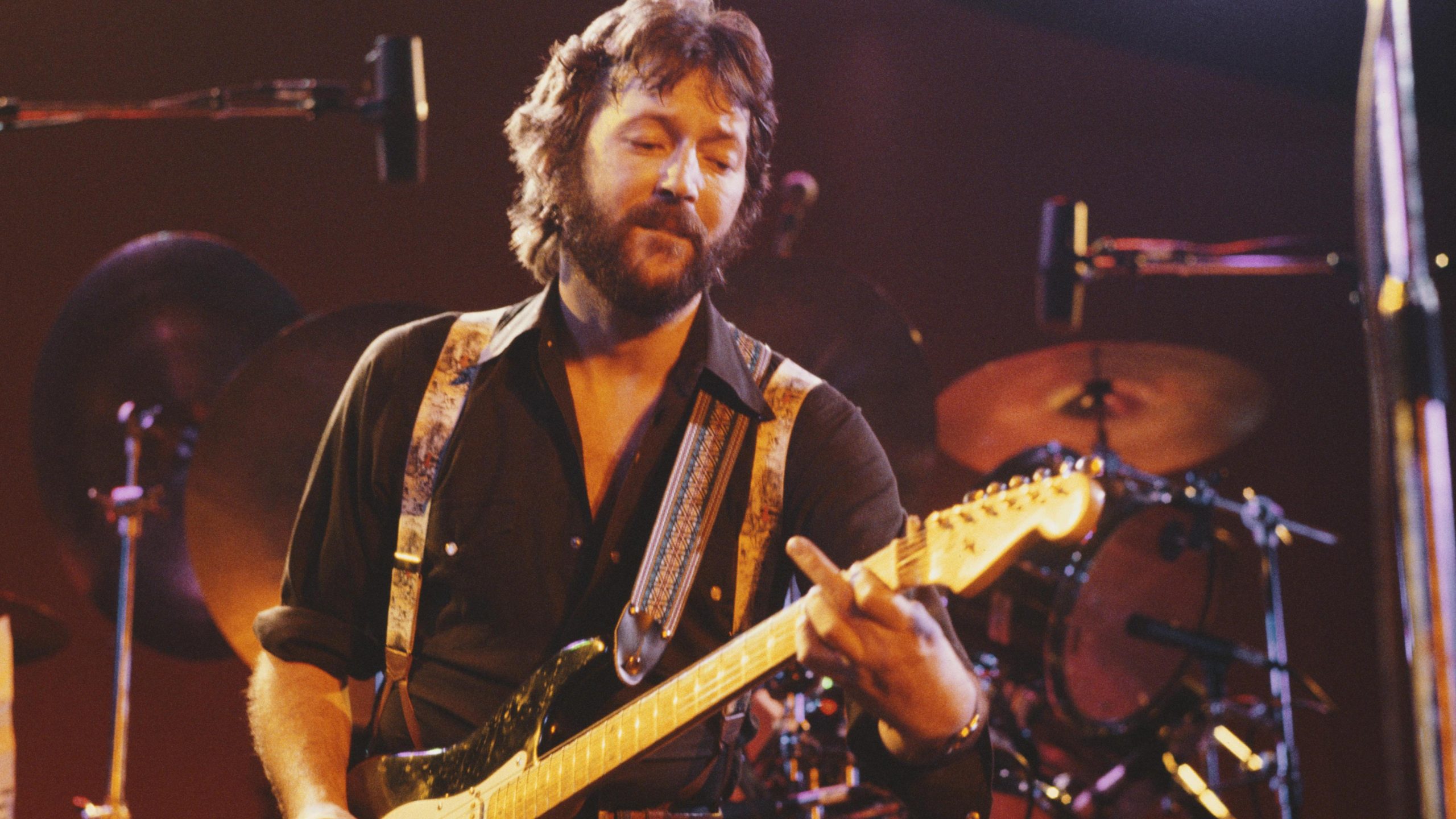A unique case. Despite not being overly productive in producing superhits, Clapton garnered universal adoration and became known as the best rock guitarist. Slow Hand or “Slowhand” – that’s what he was called in his foggy British youth, when he savored the delights of mastering his first guitar for 14 pounds sterling, gifted by his grandmother and grandfather on his 14th birthday (a lucky number?), and dreamed of Muddy Waters. It all started with the blues, which Eric fell in love with forever, and soon it was this music that sang in the strings of the future rock idol.
At the beginning of his journey, Clapton was already surrounded by those who would soon be almost as well-known as him – for example, the young Tom McGuinness, who would later become one of the “Manfred Mann”. With him, Eric played in his first band – the “Roosters,” which bored him in less than a year. Ahead was the Beatlemania-infected ’63, with bands appearing in Britain like mushrooms after an August rain. Collaboration with the “Yardbirds” was exactly what Eric had long been waiting for. He didn’t yet know that the best times with “Cream” and the golden glory of the first guitarist lay ahead, but already in ’63, it felt like the whole world revolved around him.
However, a year and a half later, the “Yardbirds” switched from blues to commercial pop, which Clapton disliked. But if a year and a half ago an almost unknown musician joined the band, then in ’64, Eric Clapton’s name already carried considerable weight, and his longing for the blues was dispelled by John Mayall’s “Bluesbreakers” project. By the way, it was then that another modest nickname stuck to Eric – God. That’s when the rapid movement towards fame began. Eric’s only recording with Mayall became a true classic. Who would have thought that his boyhood dreams would come true! But credit must be given to him – he had everything for it.
The star period of the superstars Clapton – of course, Cream. The name was really well chosen – the cream of music and mastery – that’s Clapton’s “Cream.” In ’66, in the era of Beatles’ dominance, it was risky to create a new band, but Eric’s bet paid off – the two-year-old “Cream” became the most exquisite blues treat of our time. However, Eric “made friends” with the supergroup. First, he played solo guitar on George Harrison’s song “While My Guitar Gently Weeps,” and years later, he even took away Harrison’s wife.
Unfortunately, in the post-cream period, the affairs of the “rock god” went rather haywire. Heroin, spiritual, and musical wanderings brought him neither peace nor creative energy. The 1970 album “Delaney And Bonnie On Tour” cannot be rated even a three, and the album “Eric Clapton” released at the same time disappointed fans altogether. However, it was then, in collaboration with Duane Allman, that the evergreen “Layla” was recorded. It was Patti who inspired Eric to create this song, and George knew nothing and invited his friend to his historic concert in Bangladesh in August ’71.
The greatest guitarist seeks new paths, battles heroin addiction, but he doesn’t quite succeed, and in the end, Clapton had to pawn some of his precious guitars – he spent up to fifteen hundred pounds a week on drugs. It was a pitiful sight and a vivid picture of how the “Gods” fall from heaven. But even then, friends did not abandon him – upon learning about the fate of Clapton’s guitars, Pete Townshend came to the rescue. And just in time. Clapton shook himself, began to seek treatment, and then gratefully said that Pete “simply saved his life.”
With renewed strength, the idol of the ’60s plunged into battle, but it was already difficult to squeeze something truly hit or at least fresh from his drug-ravaged soul. Clapton chews on old “Cream” harmonies and rhythms, but in ’74, the album “461 Ocean Boulevard” was released, which topped the charts in America and ranked third in the musician’s homeland. Need I say that the star of the album was the Marley cover “I Shot The Sheriff.” Since the days of “Cream,” this was a real success. Whether due to once-overdosed fame and attention or, on the contrary, due to a lack of emotional involvement, Eric found no peace.
And even though Patti Harrison finally left him, Clapton, just recovered from drug addiction, started drinking. Over the following years, the only work that could be singled out would be the “Slowhand” album, which featured two interesting pieces – “Wonderful Tonight” and the famous “Cocaine.” It seemed that the great guitarist was trying to become a great performer and composer, who, by the way, also played the guitar. The youth who didn’t know “Yardbirds” and “Cream” saw on stage a polished guy with a couple of flaws, and as simple as daylight.
Of course, compared to the brilliant past, Clapton’s achievements looked rather tolerable, but perhaps thanks to his desire to improve after several years of decline, the eighties were kind to him. Albums sold well, critics were favorable, especially positive reviews were received for the albums “Another Ticket” and “Money And Cigarettes”. His friends did not leave him – Phil Collins and Tina Turner participated in the recording of the quite successful “August.” There was no doubt that Clapton was blooming again.
His voice sounded wonderful, and the “Journeyman” album reminded everyone that Eric Clapton was still a brilliant guitarist. It’s no wonder that the work was a grand success, and the elated Clapton gladly accepted invitations to collaborate from musicians, among whom were Phil Collins, Bob Dylan, Joe Cocker, Aretha Franklin, but he was particularly delighted to work with Knopfler at the “Dire Straits” concerts. Packed halls, sold-out shows at the Royal Albert Hall, all the growing success in the early ’90s. Work for several months stopped due to the death of his son. But soon Clapton again put on dark glasses and returned to where it all began – to acoustic blues. Among all the “white” blues guitarists, he’s the “blackest.” And women say that Eric Clapton has incredibly tender hands, so recently another nickname stuck to him – “Tenderhand”.
Originally published in TV-Park





No responses yet